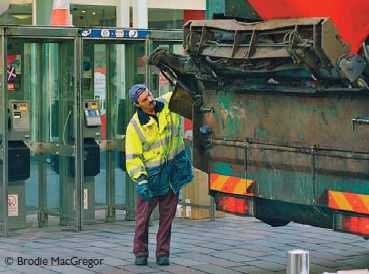Low pay, particularly in the current context of welfare reform, weakens the resilience of individuals and communities. In this article, Eddie Follan argues that paying a living wage is a crucial element in ensuring that this situation is reversed.
The Demos publication ‘Resilient Nation’ defined resilience as: “The capacity of an individual, community or system to adapt in order to sustain an acceptable level of function, structure, and identity.”
As the UK coalition Government continues to unveil its plans on welfare and the full force of cuts in public spending loom large, its not hard to see the many different ways in which the capacity of individuals and communities to ‘adapt in order to sustain acceptable levels of function, structure and identity’ come under increasing strain.
Changes to the welfare system have dominated debate in the last few months with the Coalition insisting that reliance on benefits traps people in a cycle of poverty and unemployment. Their solution is to ensure that work pays and that there is no incentive to remain on benefits for long periods of time. Unfortunately, the Coalition’s approach has been to propose cuts to benefits rather than tackling the issue of low pay.
Around 400,000 workers in Scotland are paid less than the Scottish living wage of £7.15 per hour. It is low paid work that traps people and communities in poverty. Sustaining ‘acceptable levels of functioning’ for individuals or communities is hugely reliant on economic circumstance. In many cases people – mainly women – will need two or even three jobs to make ends meet. The subsequent impact on their health, the ability to look after children, provide a stable family life and contribute to the well being of the community is drastically affected.
The Scottish Living Wage Campaign (SLWC), a coalition of trade unions, NGO’S and faith based organisations have been successful in persuading national politicians in Scotland of the need for paying a living wage – currently £7.15 – in the public sector. Both main political parties have made public commitments to ensuring that this happens in one way or another.

© Brodie MacGregor
Whilst establishing the living wage, not only as a principle, but as an economic reality for thousands of low paid Scottish workers is a huge step forward, the challenges in ensuring that fair pay is a reality for all workers remains significant.
The private sector, touted as a solution to job losses in the public sector, continues to have the highest rates of low pay in Scotland. At the moment there can be no requirement on private sector companies to pay a living wage although the prospects of public sector contracts containing a living wage clause are increasing as political support grows.
People and communities living in poverty are under increasing pressure and their ‘resilience’ is being severely tested. Locking these same people into low paid work will only add to that pressure.
Progress is being made, but private sector employers need to contribute to building community resilience by ensuring that all workers are paid a living wage.
